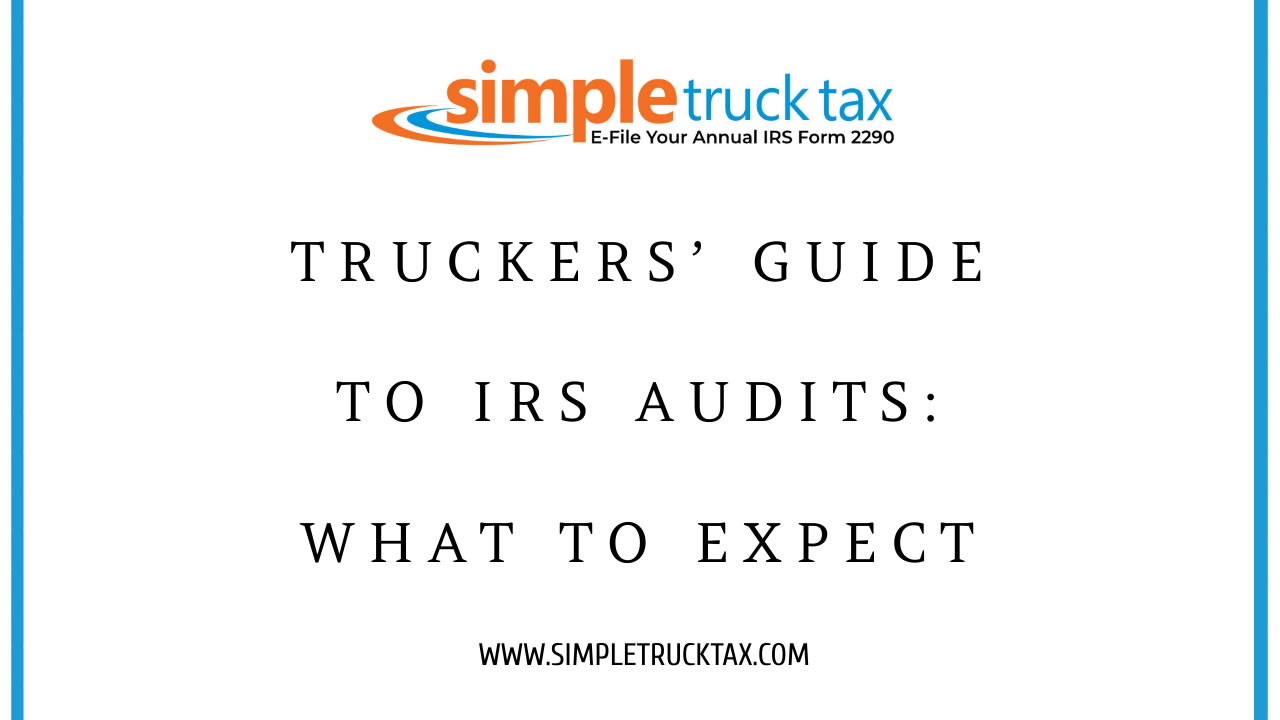
Truckers’ Guide to IRS Audits: What to Expect
For truckers who lead busy lives and work on the move, taxation complexities can seem overwhelming. Having to go through an IRS audit only adds more stress to an already heavy load but being aware of the process and preparing properly can make a big difference. In this regard, truckers should note these facts.
Understanding IRS Audits
What Triggers an Audit?
The chances of being audited by the IRS may be increased by some factors which include;
- Income Levels: Higher earners are more likely to be audited.
- Overstating Deductions: Claiming much higher deductions than others in your income group.
- Self-employed: A common category for truck drivers which is highly scrutinized due to possible underreporting of income or over reporting of expenses.
- Tax Discrepancies: Differences between what has been reported as earnings and information submitted by employers or customers.
Types of Audits
Several audits are done at the IRS:
- Mail Audit or Correspondence Examination: This audit is done over mail and deals with minor issues most often.
- Office Audit: It requires a visit to the Internal Revenue Service office premises.
- Field Audit: An agent from the Internal Revenue Service comes into your home or business place.
- Taxpayer Compliance Measurement Program (TCMP): It is a comprehensive study examining every aspect of tax return.
Preparing for an Audit
Gathering Documentation
Preparation is key during an audit. Collect all relevant paperwork including:
Income Records: Pay stubs, 1099 forms, bank statements Expense Receipts: Fuel, Maintenance, Lodging, Meals and other business expenses. Mileage Logs: Accurate records of miles driven for business purposes. Tax Returns: Copies of tax returns for the year under review as well as earlier years if applicable.
Organizing Records
To make the audit process flow more smoothly, records should be kept in an organized manner:
Digital Records: Digital copies of receipts and logs can be stored using software. Physical Files: Hard copies are to be maintained in well-labeled folders. Categorize Expenses: All expenses for different categories should be put together.
During the Audit
Cooperating with the Auditor
- Professionalism: Approach the audit with a cooperative and professional attitude.
- Fulfill Requested Information: Provide all requested documents promptly.
- Seek Clarification: If you don’t understand something, ask for an explanation?
Understanding Your Rights
You have some rights as a taxpayer when being audited:
- Representation: You can retain a tax professional to act on your behalf during this exercise.
- Privacy and Confidentiality: Your issue will be handled confidentially by the IRS.
- Appeal: You may appeal any adverse decisions from that process.
Common Audit Issues for Truckers
Deductions
Expenses come under scrutiny even though truckers are allowed to deduct several costs:Per Diem Rates: Understand and apply per diem rates for meals and incidental expenses. Home Office Deduction: Home office expenses deduction is available if you qualify according to IRS guidelines. Travel Expenses: Lodging, meals and other travel expenses incurred on duty bases could be deducted here.
Income Reporting
Ensure accurate reporting of all income:
- Freelance Work: All freelance/independent contracting work income must be reported.
- Cash Payments: Record all cash received clearly well enough.
Recordkeeping
Keeping proper records is vital:
Mileage Logs: Detailed logs showing business miles driven must always be kept. Expense Tracking: Keep detailed records of every business-related expense. Income Records: Maintain complete information about all sources from which revenue has been earned.
Once the Audit is Finished
Results of Audit
After the audit, you will be given the following results:
- No Change: Provided your return is accepted by the IRS.
- Agreed: In case you accept what IRS has found and any adjustment made.
- Disagreed: Incase you disagree with the findings and want to appeal.
Changes Implementation
If adjustments are made:
- Amend Returns: Amend returns as need be to reflect any changes.
- Plan for the Future: Make better record keeping and compliance practices to avoid future problems.
Being a trucker who faces an investigation by Internal Revenue Service can be a distressing thing but knowing this process and getting ready well may help in reducing much concern. Keep detailed records, know your rights, and consult professionals when necessary. By being informed and organized, one can successfully navigate through this financial inquiry while still concentrating on what lies ahead.
Note: For more information, visit IRS website